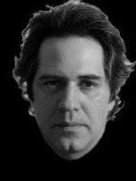growing pianist
0
Tullio Forlenza
Название материалаTullio Forlenza
Название главы или разделаMUSICAL CAREER / CONCERT ACTIVITY
Авторыgrowing pianist
Год написания / публикацииНе указано
Тип материалаThe Italian pianist Tullio Forlenza gave his first concert in his hometown of Salerno, at the age of 12, playing the “Little Preludes and Fughettas” by Johann Sebastian Bach. His natural inclination for polyphonic music has characterized his artistic career and he is known to include Preludes and Fugues from the "Well-Tempered Clavier" by Johann Sebastian Bach and Canons and Fugues from "Gradus ad Parnassum" by Muzio Clementi in his concerts. In addition he has developed a teaching method for learning and memorizing piano scores, with a particular focus on polyphonic music. Currently his life revolves around studying and performing in Italy and abroad, as well as teaching.
Издательство / СМИWhile his repertoire contains works by composers belonging to the great musical tradition, among whom figure Johann Sebastian Bach, Wolfgang Amadeus Mozart, Ludwig van Beethoven, Fryderyk Chopin, Modest Mussorgsky, Igor Stravinsky, Tullio Forlenza also plays lesser-known compositions of equal interest and appeal. He frequently performs works by the great Italian sonata composers of the 1700s: "Abate" Lorenzo De Rossi detto Romano, Domenico Paradisi, Baldassarre Galuppi, Domenico Cimarosa, Giovanni Marco Rutini, Muzio Clementi, and once performed an entire program of this music at the Palazzo Farnese in Rome, at the invitation of the French Academy. Alexander Borodin’s charming composition, Petite Suite [Little Suite], which effectively takes up the entire first half of a concert program, has, in turn, been followed by Modest Mussorgsky's "Pictures at an Exhibition" or, as in Portugal in 2010, by "Ragtime", "Tango", "Circus Polka" and Igor Stravinsky's "Petrushka" at the Auditorium of Carnaxide. Also notable, and receiving unanimous critical acclaim for the clarity and intensity of his interpretation, was his performance of the extremely complex "24 Preludes Op.34" by Dmitri Shostakovich. These were then followed, in antithetical contrast, by compositions by Wolfgang Amadeus Mozart, while on tour in Wales (Port Talbot, Swansea, Newport) and in nearby Oxford in 2008. In 2011, as part of the celebrations marking the bicentennial of the birth of Franz Liszt, Tullio Forlenza played lesser-known works from the composer’s latter period, requiring, nonetheless, considerable technical effort and interpretative skill, and included "The Funeral Gondola I and II", and "Romance", "Romance Oubliée [Forgotten Romance]", "Third Mephisto Waltz", "Csárdás Obstiné [Stubborn Czardas]" and "Csárdás macabre". These he performed at the International Piano Concert Season held at Palazzo Rybna in Krakow. Memorable and original describe his Kinderkonzert program, performed on many occasions, including a special evening in Portugal in 2010, at the Auditorium of Oeiras, of Wolfgang Amadeus Mozart’s "Easy Sonata in C Maj. K545"; Ludwig van Beethoven’s juvenile "Sonata in F Min. WoO 47 n. 2"; Robert Schumann’s "Scenes from Childhood Op.15" and Dmitri Shostakovich’s "Dances of the Dolls". An interesting and recent inclusion in his repertoire is Girolamo Frescobaldi's "Toccata in G Maj. F 3.05" and "Fugue in G Min. F 18.06S", transcribed by Béla Bartók. To complete the panorama of Tullio Forlenza’s concert activities, a brief mention of his frequent participation in chamber music concerts should be made, which feature some quite distinctive and unusual offerings such as: "Libeslieder [Lovesongs] Walzer Op.52" by Johannes Brahms for choir and piano for four hands; the transcription of Ottorino Respighi's "Pines of Rome" for piano for four hands; "Sonata for Horn and Piano in F Maj. Op.17" by Ludwig van Beethoven, for horn and piano; the rare "Nocturne Concertante Op.68" by Jan Ladislav Dussek and the "Trio Op.40" by Johannes Brahms for violin, horn and piano; "Der Hirt auf dem Felsen" [The Shepherd on the Rock] D.965 by Franz Schubert and the "Sechs Deutsche Lieder [Six German Songs] Op.103" by Louis Spohr for soprano, clarinet and piano.
КомментарийНе указано
Комментарии (0 )





